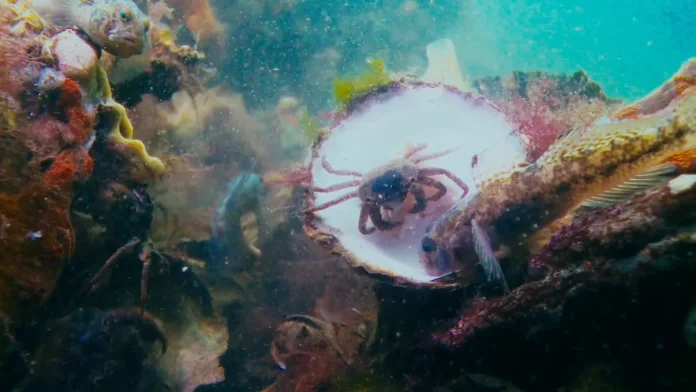A new partnership between Ørsted and ARK Nature is testing the potential of rewilding principles to restore vital ocean biodiversity even with the global transition to renewable energy.
One initial focus is restoring shellfish reefs that are fundamental to ecological restoration in the North Sea, and to use learnings from the project to develop the best ways to scale up work globally to ensure an overall net-positive impact on nature when building offshore wind farms.
ARK Nature is a founding partners of Rewilding Europe focused on the rewilding approach to nature restoration, which has already proven effective on land.
“When it comes to tackling the climate crisis and biodiversity loss, there’s a real need for speed,” states Rasmus Errboe, head of Region Continental Europe at Ørsted. “We need urgent action – but that speed must not come at the expense of nature, and Ørsted believes it doesn’t have to. With this new collaboration, I’m excited to add to our existing, ambitious global biodiversity program. Together with ARK, Ørsted will implement innovative new restoration projects and study how rewilding can contribute to improving the health of our oceans, and how the offshore wind sector can enhance that contribution.”
The partnership will start in the North Sea, where Ørsted and ARK are setting up a marine field lab for rewilding. The first step is finding the most suitable location on ecological grounds, and from there they will develop and implement promising rewilding measures.
“ARK Nature and Ørsted are ultimately pursuing the same goal: self-sustaining, healthy oceans,” comments Jos Rademakers, CEO of ARK Nature. “We’ll aim to restore the vital natural processes and contribute to creating wind farms that have an overall positive impact on nature and humanity. And we know we have to deliver that impact as soon as we possibly can.”
One initial focus is on restoration of shellfish reefs – reefs formed by living organisms such as oysters and mussels which act as the foundation of a healthy marine ecosystem. They provide food, shelter and breeding grounds for other species, in addition to improving water quality and are fundamental to the restoration of the wider North Sea ecosystem. Currently there are very few places remaining in the North Sea where shellfish larvae can attach and create new reefs. The partnership will test and develop the best ways for wind farms to provide this and support biodiversity. Once the approach has been sufficiently tested, it could potentially be applied at a larger scale around the world.




